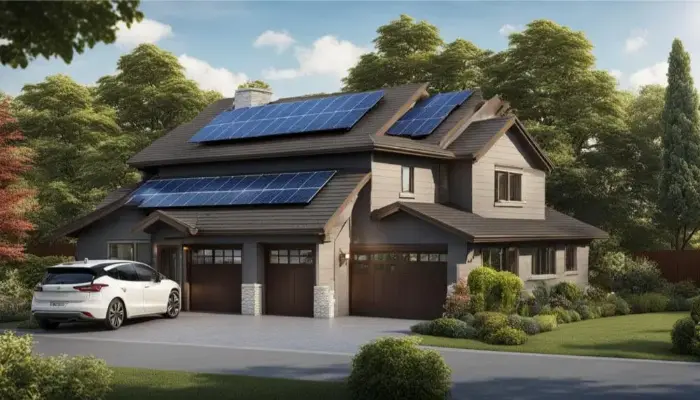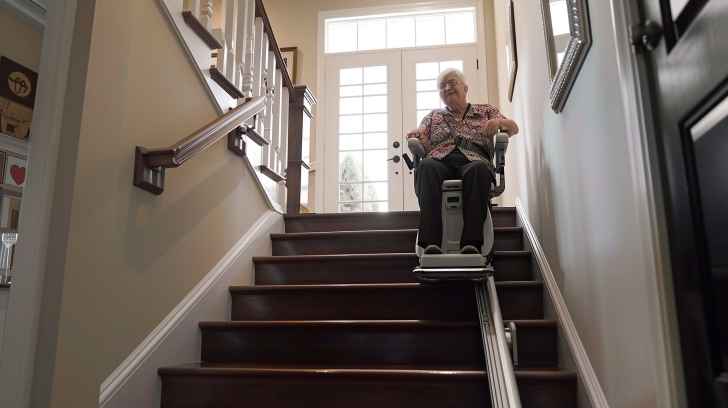Imagine tapping into the vast expanse of the sun’s energy right from your rooftop. Home solar panels are more than just a trend—they’re a strategic move toward solar power for homes, offering you the chance to harness solar electricity generation for a greener, more sustainable lifestyle. As a homeowner, adopting photovoltaic systems spells out a host of advantages, including financial savings and reduced environmental impact. It’s time to ask yourself whether joining the legion of green energy pioneers with a solar-powered home fits into your vision of a smart, future-proof residence.
Key Takeaways
- Photovoltaic systems are a practical and eco-friendly option for modern homeowners.
- Incorporating solar power for homes leads to substantial energy cost reductions over time.
- The adoption of green energy via solar electricity generation contributes to a healthier planet.
- Home solar panels can elevate property values and enhance your home’s appeal.
- Working with reputable solar providers can streamline the transition to solar-powered living.
- Energy independence is within reach by embracing the full potential of residential solar systems.
An Introduction to the Solar-Powered Smart Home Revolution
Imagine a future where your home not only provides comfort and safety but also functions as a personal power station, harnessing home renewable energy to meet all its needs. That future is here with the rise of the solar-powered smart home. These innovative living spaces are at the forefront of a movement, blending solar energy conversion with advanced home automation to achieve remarkable new levels of home energy independence.
Solar system installations
are no longer just about placing panels on your roof. They’re about integrating your entire home into a smart network, connected and managed through the
Internet of Things (IoT)
. Devices that control lighting, heating, and security systems can now be optimized to work seamlessly with your solar panels, providing an efficient and eco-friendly lifestyle.
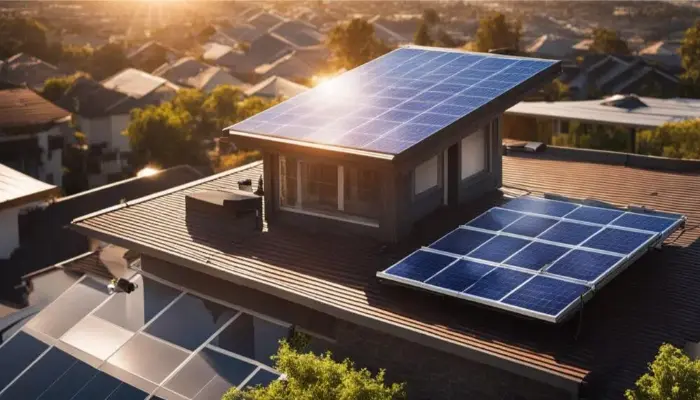
The perfect synchrony between solar setups and a smart home is more than just convenience; it’s about gaining real-time insights and control over your energy usage. IoT technology empowers you to monitor and manage power consumption with a tap on your smartphone, creating a balanced and energy-conscious home environment.
- Reduction in utility bills through optimized energy use
- Increased comfort with smart, energy-efficient devices
- Greater control over your home’s carbon footprint
| Smart Home Feature | Benefits |
|---|---|
| Automated Thermostats | Reduce heating and cooling costs through intelligent scheduling |
| Remote-Controlled Lighting | Save energy with motion sensors and scheduling |
| Intelligent Security Systems | Enhance safety while saving energy when you’re away |
| Smart Solar Panels | Maximize energy production with sun-tracking capabilities |
The solar-powered smart home isn’t just a fad, it’s a revolution in how we live and interact with our environment. As more people look for ways to minimize their environmental impact and utility costs, this sophisticated synergy between technology and renewable energy sources is setting the blueprint for modern, sustainable living.
Understanding Solar Energy Systems and Your Home
When exploring the realm of solar panel technology and clean energy solutions, it’s critical to understand how photovoltaic systems integrate with your home’s architecture and energy requirements. The efficiency and effectiveness of a solar power system are contingent upon its design and components, tailored to individual needs and locations. Transitioning to sustainable energy with rooftop solar panels can lead to significant solar energy savings and contribute to a more eco-friendly energy footprint.
What Are Solar Energy Systems?
Photovoltaic systems, known widely as solar energy systems, consist of multiple components that work together to convert sunlight into electricity. These systems employ solar panel technology that captures photons and, through a process of energy conversion within the panels, generates an electrical current. This conversion underscores the principle that makes home solar energy a viable and energy-efficient option for powering our modern lives while diminishing our environmental impact.
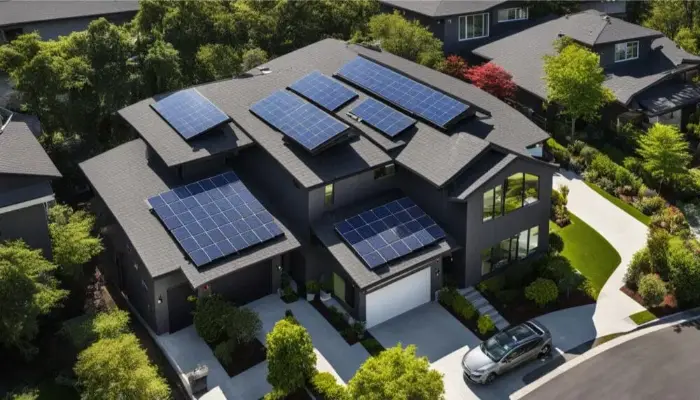
Components of a Residential Solar Panel System
A typical home solar setup includes a few key elements: solar panels, solar inverters, and solar battery storage. Each component plays a vital role in ensuring the solar panel efficiency and reliability of the system. Solar inverters form a pivotal link by converting the direct current (DC) produced by the panels into alternating current (AC), which is what powers household electronics. Moreover, solar battery storage solutions empower you to capture excess energy, which can be used during non-sunny periods, thus enhancing overall energy conservation and cost-effectiveness.
| Component | Function | Importance |
|---|---|---|
| Solar Panels | Generate DC electricity from sunlight | Directly affects system’s power output |
| Solar Inverters | Convert DC to usable AC electricity | Key for compatibility with home appliances |
| Battery Storage | Store extra generated energy | Enables energy independence and savings |
The Role of Smart Homes in Energy Conservation
Advancements in home solar energy align closely with the rise of smart homes, which have revolutionized the way we conserve and manage our energy usage. The synergy between energy-efficient solar panels and smart home technology leads to optimal use of resources and integration with the solar power grid. Smart homes equipped with solar power systems not only reduce reliance on traditional power sources but also usher in a future of eco-friendly energy solutions, emphasizing the potential for remarkable energy savings and a more sustainable energy landscape.
Home Solar Panels: Balancing Efficiency and Investment
When you consider turning to solar energy investment, understanding the balance between initial costs and long-term gains is crucial. The advancement in solar technology has dramatically tipped the scales in favor of residential solar panels by reducing installation prices and optimizing energy yield leading to an attractive return on investment (ROI). With PEP Solar’s expertise, the transition to solar becomes a calculated and beneficial decision.
Indeed, the solar panel performance has surged forward, with today’s panels offering more than just reduced electric bills. Increased efficiency and a more robust solar panel lifespan mean that your investment is not only environmentally sound but also financially savvy. PEP Solar helps to align your energy needs with the perfect solar setup, ensuring that every watt is accounted for and every dollar is wisely spent.
- Examine the efficiency and estimated energy production of various solar panel models.
- Consider the long-term financial benefits, including energy savings and potential for increased property value.
- Calculate the expected ROI, factoring in incentives like tax credits and rebates.
- Discuss your energy goals with a PEP Solar expert to tailor your solar panel system appropriately.
PEP Solar’s proficiency ensures that investing in solar power is a transparent and rewarding process, helping you join the ranks of homeowners enjoying sustainable sun-powered energy.
The Nuts and Bolts of Solar Power Installation
When it comes to enhancing your home with solar power, the first step is selecting a solar panel design that aligns with your solar power capacity needs and solar energy production goals. Understanding the intricacies of solar panel output is essential for ensuring your residential solar panel system meets your energy demands efficiently.
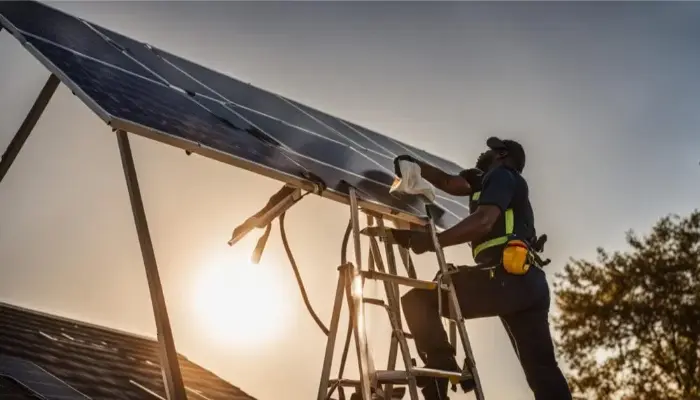
The intricacies of installing a solar power system go beyond aesthetic appeal and delve into the optimization of your solar energy conversion process. Let’s unpack the fundamental steps to secure a reliable and effective photovoltaic system reliability for your home.
Selecting the Right Solar Panels for Your Needs
Factors such as your home’s average electricity consumption and the architectural design of your roof significantly influence the type of solar panel that best suits your needs. With options ranging from high-efficiency modules to home solar kits, carefully consider your choice to maximize the benefits of a grid-tied or off-grid solar system.
The Importance of Solar Panel Maintenance
Consistent solar panel maintenance underpins the longevity and efficacy of your solar investment. With warranties and solar power maintenance agreements, companies such as PEP Solar provide peace of mind, safeguarding your system against potential downtimes and ensuring persistent solar panel output.
Integrating Solar Inverters and Battery Storage
Seamless solar energy production is achieved with the integration of cutting-edge solar inverters and solar battery storage solutions. These components are essential for managing peak solar production and deliver the flexibility required to maintain an uninterrupted power supply, whether you choose an off-grid or grid-tied solar system configuration.
Maximizing Solar Energy Savings with Incentives and Technology
Embracing solar power translates into an opportunity not only to enhance your home’s energy autonomy but also to reap considerable savings, thanks to a range of solar panel incentives and emerging technological advancements. These include substantial solar energy tax credits, enticing solar panel rebates, and innovative financing options which together create an enticing environment for homeowners to make the switch to renewable energy.
How Solar Tax Credits and Rebates Enhance ROI
The prospect of solar investment might have you wondering about the financial implications. Here’s some great news: entities such as the federal government have initiated solar energy tax credits like the Solar Investment Tax Credit (ITC) to reduce the initial cost burden on homeowners. With these solar panel rebates and other localized incentives, the immediate impact of solar panel financing is significantly softened, boosting the overall return on investment for your solar installations.
Advances in Solar Panel Technology
Continual solar panel technology upgrades are at the forefront of the solar power systems innovation, presenting more efficient and resilient designs like the striking SmartFlower. Smart solar technology is pivotal to this progress, integrating mechanisms for maximizing sunlight capture and enabling homeowners to monitor and tweak performance via easy-to-use interfaces. This propels not only the capacity for solar electricity generation but also the seamless solar power grid integration, invariably evolving the landscape for home renewable energy scalability.
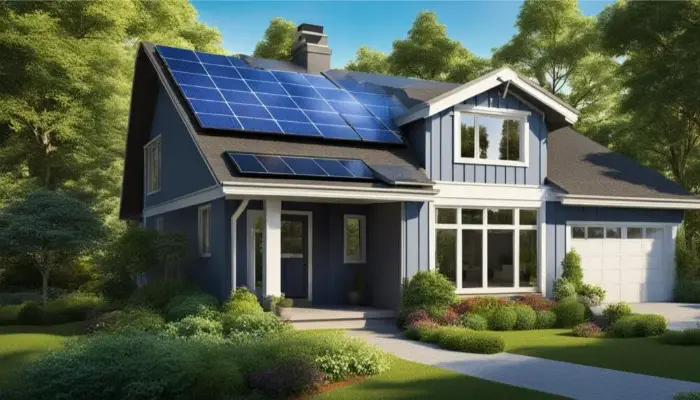
Leveraging Net Metering for Increased Savings
An attractive aspect of owning a solar installation is the ability to engage in net metering. This system allows for the feeding of surplus solar electricity back into the community grid. Through net metering, you can witness a depreciation in monthly utility bills as you’re credited for the excess solar energy your system contributes. Such symbiotic exchange not only empowers the solar power ecosystem but also illustrates the cooperative dynamic between residential solar energy producers and local utilities.
| Solar Incentive | Benefit | Scope |
|---|---|---|
| Federal Solar Investment Tax Credit (ITC) | 26% tax credit for systems installed before 2023, 22% for systems installed in 2023 | Nationwide |
| Local Solar Rebates | Direct reduction on the overall system cost | Varies by state and locality |
| Solar Renewable Energy Certificates (SRECs) | Earn certificates for solar electricity generation, which can be sold or traded | Available in applicable states |
| Net Metering Programs | Credit on utility bill for surplus energy fed into the grid | Varies by state and utility company |
For more detailed insights, consulting with solar energy consultants can steer you through the incentives and cutting-edge solar panel financing options available in your area. By capitalizing on these opportunities, you’re investing in not only your financial future but also the sustainable development of our planet.
Real-World Examples of Solar Energy Benefits for Homeowners
The ascent of solar energy for homeowners is not just a trend but a testament to its tangible benefits across the United States. With the goal of enhancing solar power efficiency and realizing substantial cost savings, real-world success stories illuminate the path for many who are considering this sustainable alternative. Both established solar panel installation companies and the advent of DIY solar panels have empowered homeowners to customize solutions that cater to their specific needs. Moreover, the availability of solar energy grants has made solar upgrades more accessible for a broader demographic.
Take for example the Johnson family from California, who witnessed a remarkable reduction in their utility bills, thanks to a robust solar system tailored to their consumption patterns. On the other side of the spectrum, the Knights from Texas opted for a DIY approach, leveraging online resources and community workshops to install their array, showcasing the versatility of solar adoption strategies.
Beyond individual narratives, let’s delve deeper into data that compares solar adoption rates and outcomes:
| State | Adoption Rate | Average Energy Savings | Availability of Grants/Incentives |
|---|---|---|---|
| California | High | 60-70% | Extensive |
| Texas | Medium | 40-50% | Moderate |
| New York | High | 50-60% | Substantial |
| Florida | Low | 30-40% | Limited |
For those curious about embarking on their own solar journey, examining these examples offers insightful benchmarks. Remember, your transition to solar can be smooth and financially rewarding if navigated with the right knowledge and resources.
Conclusion
As we’ve explored the terrain of solar energy and its integration into smart homes, you may find yourself at a crossroads, wondering if a solar power setup is the right fit for your abode. The decision to transition to solar involves meticulous home solar energy assessment, dissecting factors such as roof conditions, your household’s energy consumption, and the financial implications. Engaging with competent solar energy consultants is a prudent step, offering you a granular photovoltaic system cost analysis and helping you navigate the complex landscape of green energy options.
Is Solar Right for Your Home?
Deep-diving into the specifics of solar energy for your home isn’t a path you tread alone. Determining the compatibility of your homestead with a solar installation is a process seasoned by expert advice, personalized assessments, and a clear understanding of the ecological imprint and financial trajectory. A tailor-made solar solution not only aligns with your lifestyle but also joins hands with sustainable energy advancements, laying groundwork for an eco-friendly legacy.
The Future of Residential Solar Power: Trends and Predictions
The compass of solar energy trends is steadily pointing towards an era of exponential solar energy sector growth. The future of residential solar power is luminous, with forecasts steering towards technologies that marry efficiency with affordability. With a societal march towards sustainable energy advancements, solar panels are expected to burgeon into more than just energy providers; they will become integral components of intelligent, autonomous home systems. Keep abreast of these changes, for they herald a transformative chapter in how we harness the sun’s boundless vigor.
FAQ
What are solar energy systems?
Solar energy systems consist primarily of photovoltaic (PV) panels that convert sunlight into electricity. These systems enable homeowners to harness the sun’s power for home energy use, contributing to green energy consumption and home energy independence.
What are the components of a residential solar panel system?
A residential solar panel system typically includes solar panels for capturing sunlight, inverters for converting the generated direct current (DC) into alternating current (AC) for home use, and battery storage to keep excess electricity for later use. Additional components may include mounting equipment, solar charge controllers, and monitoring systems.
How do smart homes contribute to energy conservation?
Smart homes use devices interconnected through the Internet of Things (IoT) to automate and optimize energy usage. When integrated with solar energy systems, these homes can more efficiently manage electricity generation, storage, and consumption, leading to significant energy conservation and utility savings.
How do solar energy investments balance efficiency and return on investment (ROI)?
Investing in solar energy entails accounting for the balance between the initial cost and long-term savings. High-efficiency panels, while sometimes more expensive up-front, may provide greater ROI through increased power generation and extended lifespan, reducing overall electricity costs over time.
How do you select the right solar panels for your needs?
To choose the right solar panels, consider your home’s average power consumption, the suitability of your rooftop, and potential sunlight exposure. Tools like SETO’s PVWatts can help in estimating your energy production needs and guide you in selecting the correct panel capacity and design.
Why is solar panel maintenance important?
Regular maintenance, including inspections, cleaning, and repairs, is essential to ensure that the solar panels operate at optimal efficiency and enjoy a long service life. Professional maintenance services can help protect your investment by preventing common issues that can reduce the panels’ energy production capabilities.
How do solar inverters and battery storage work together in a solar energy system?
Solar inverters convert the DC power from solar panels into AC power usable in the home. Battery storage systems store any excess energy produced, allowing for energy use during times when the solar panels aren’t generating power, such as at night or during inclement weather. Together, they provide a reliable and consistent energy solution.
How can solar tax credits and rebates enhance the ROI of solar energy systems?
Solar tax credits, like the Solar Investment Tax Credit (ITC), and various state-level rebates can significantly reduce the total cost of solar system installation. These incentives lower the upfront investment, thereby improving the ROI and making solar energy systems more financially feasible for homeowners.
What advances in solar panel technology have been made recently?
Advancements in solar panel technology include increased efficiency, durability, and integration with smart home technology. Innovations like sun-tracking systems, performance monitoring, and aesthetically appealing designs like the SmartFlower have made solar power systems more user-friendly and effective.
How does net metering contribute to increased solar energy savings?
Net metering policies allow homeowners with solar energy systems to send surplus power back to the grid in exchange for credits on their utility bills. This can lead to significantly reduced electricity costs and provides additional incentive for homeowners to invest in solar power systems.
Is solar power the right choice for your home?
Determining whether solar power is right for your home involves assessing factors such as roof suitability, energy consumption needs, and financial considerations. Consulting with solar energy experts can help you understand potential costs, savings, and the overall benefits to make an informed choice.
What are the future trends and predictions for residential solar power?
The future of residential solar power looks bright, with anticipated trends including more efficient and cost-effective solar panels, further integration into smart home systems, and innovative solutions that support increased adoption of solar energy as a sustainable energy source for homes.


